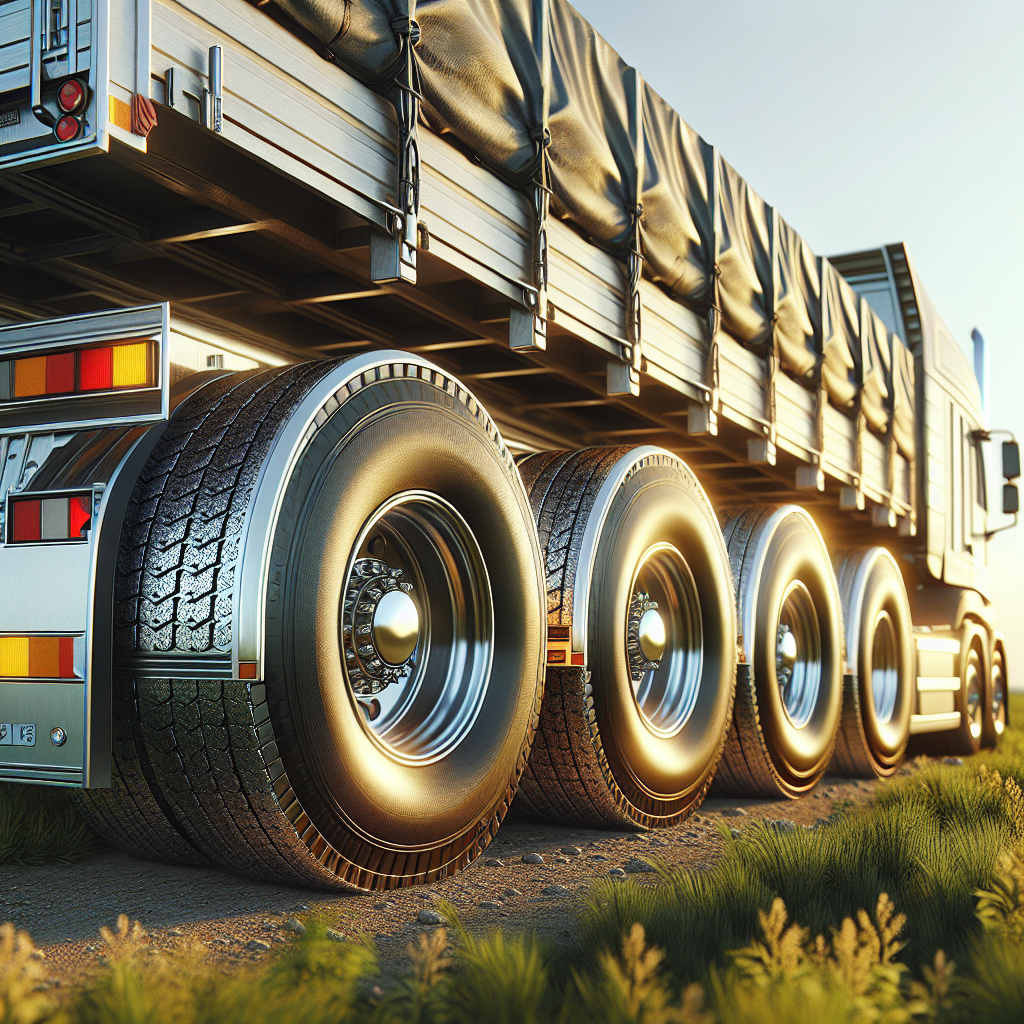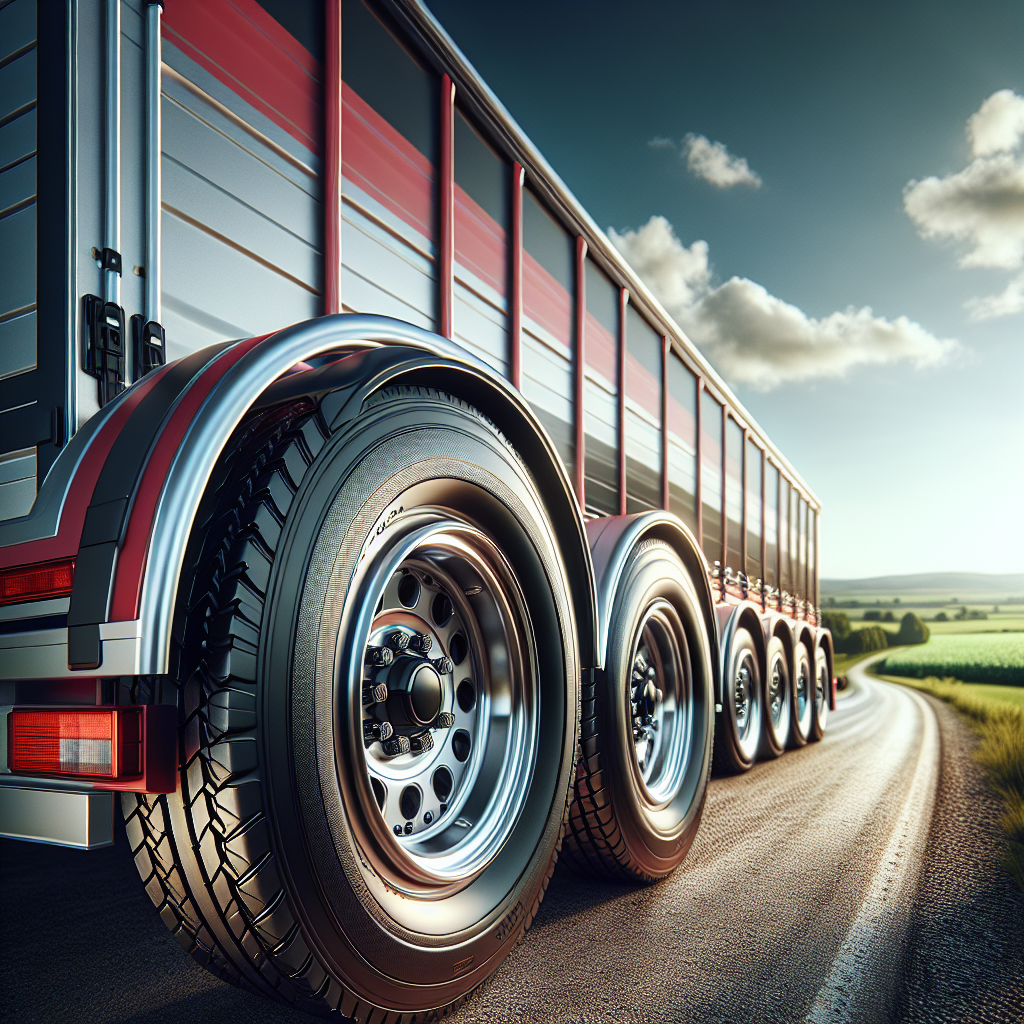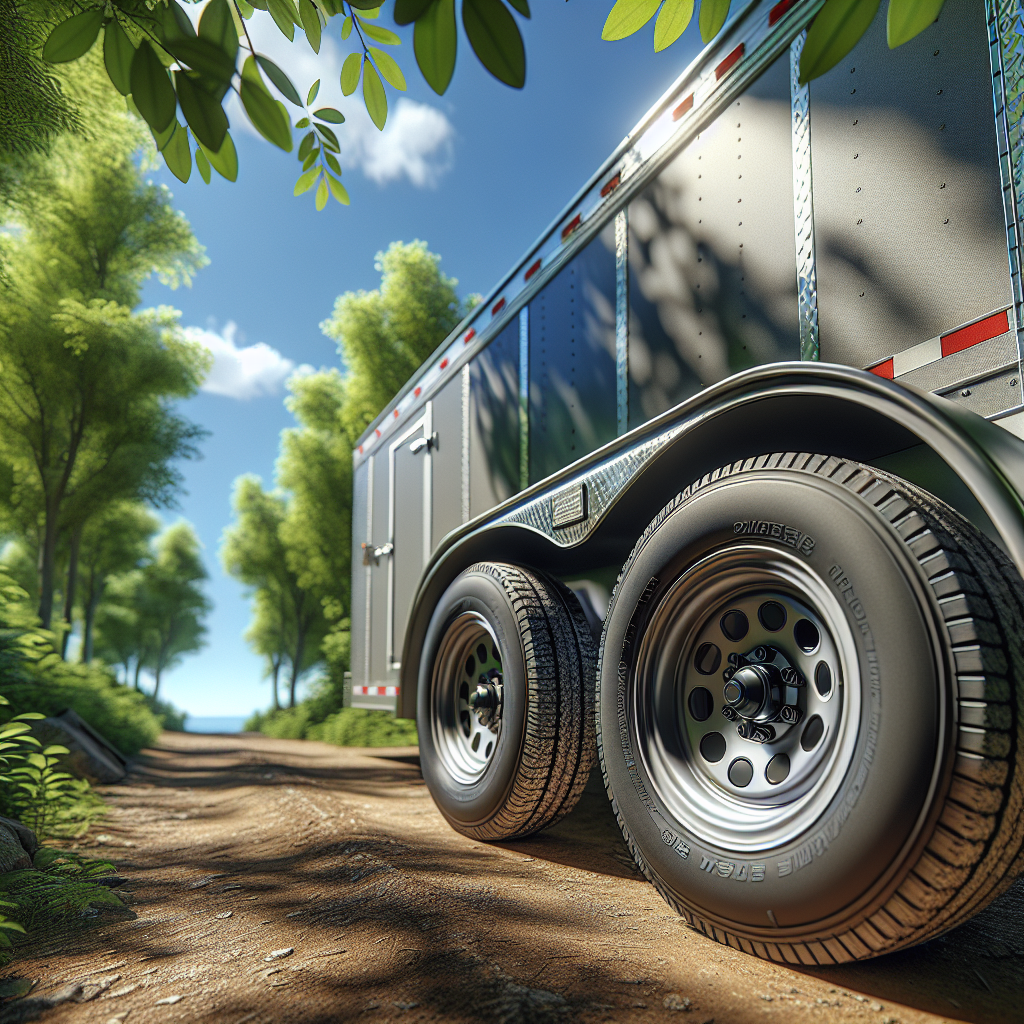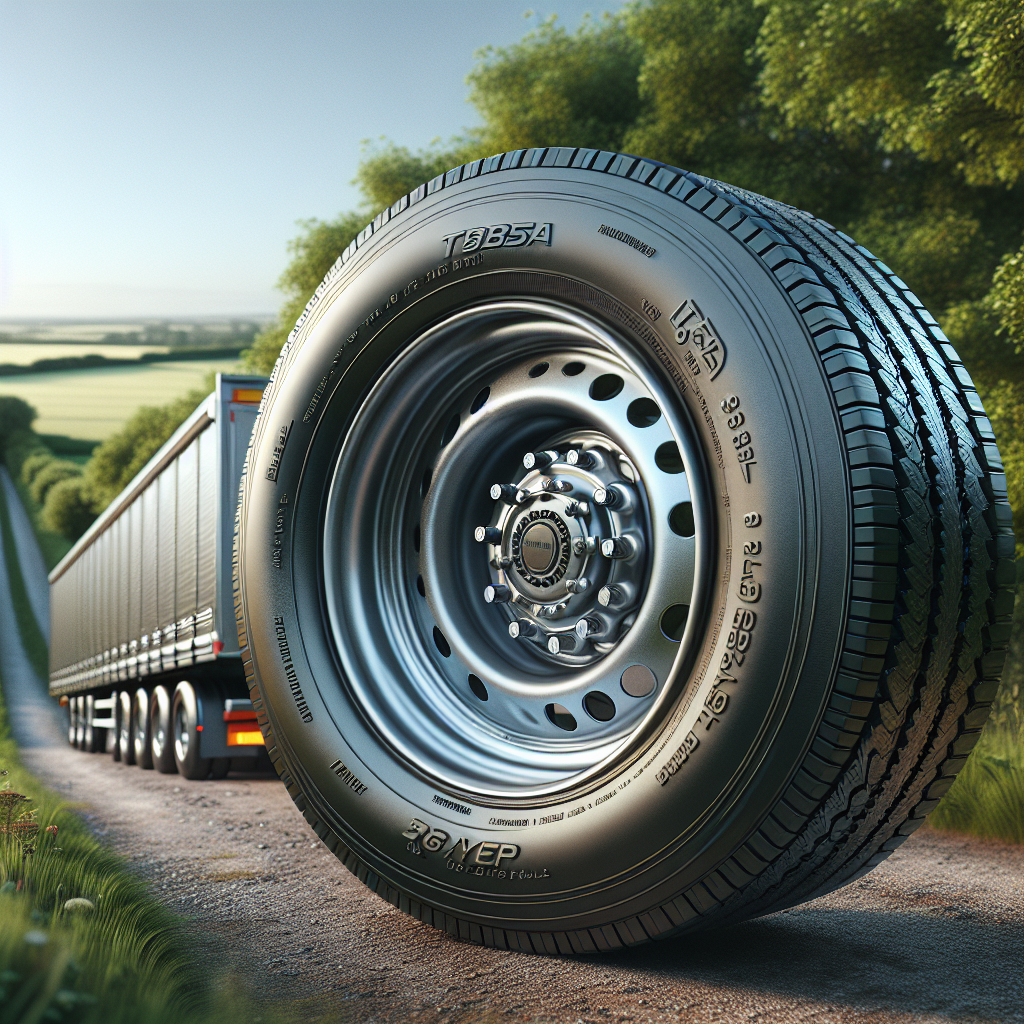Maintaining the correct tyre pressure is crucial for the performance and safety of your trailer. When it comes to what tyre pressure for trailer is optimal, it's essential to understand that each trailer may have different requirements based on its design and intended use. Incorrect tyre pressure can lead to a range of issues, from decreased fuel efficiency to increased wear and tear on the tyres, and even catastrophic failure in extreme cases.
Proper tyre pressure ensures that tyres wear evenly, maximizing their lifespan and performance. When tyres are inflated to the recommended pressure, they provide better traction, improved handling, and enhanced stability on the road. On the other hand, under-inflated tyres can cause overheating, which may lead to blowouts, while over-inflated tyres can reduce traction and compromise safety.
To determine the ideal tyre pressure for your trailer, always refer to the manufacturer's guidelines, which can typically be found on a sticker located on the trailer's frame or in the owner's manual. Additionally, it's wise to regularly check tyre pressure, especially before long trips or when carrying heavy loads.
Tow with peace of mind, knowing that trailerwatchdog is standing guard. Visit trailerwatchdog.com for more information on how our advanced monitoring system can help keep your trailer safe on the road.
Recommended Tyre Pressure for Different Trailers

When it comes to the recommended tyre pressure for different trailers, it's vital to recognize that each type of trailer has its unique specifications. The correct tyre pressure can vary significantly based on the trailer's design, size, and intended load capacity.
1. **Utility Trailers**: Generally, utility trailers require a tyre pressure of around 50-60 psi. This pressure helps support the weight of various loads while ensuring stability during transportation.
2. **Travel Trailers**: For travel trailers, the recommended pressure usually falls between 60-80 psi. These trailers often carry a significant amount of weight, so maintaining the right tyre pressure is essential for safe towing.
3. **Boat Trailers**: Boat trailers typically have a recommended tyre pressure of 50-65 psi. This range ensures that the trailer can handle the weight of the boat while providing adequate grip and control on the road.
4. **Fifth Wheel Trailers**: Fifth wheel trailers often recommend a tyre pressure of 80-110 psi. Due to their size and weight, ensuring the right pressure is crucial for safety and performance.
Always refer to the specific guidelines provided by the trailer manufacturer, as these recommendations may vary. Regularly checking and adjusting tyre pressure is a simple yet effective way to enhance the safety and longevity of your trailer.
How to Measure and Adjust Tyre Pressure

Properly measuring and adjusting your trailer's tyre pressure is essential for maintaining safety and performance on the road. Here’s a step-by-step guide on how to effectively check and adjust tyre pressure:
1. **Gather Your Tools**: You will need a reliable tyre pressure gauge and an air compressor. Ensure that both tools are in good working condition.
2. **Check the Recommended Pressure**: Before measuring, refer to the trailer manufacturer’s specifications for the ideal tyre pressure. This information is typically found on a sticker inside the trailer door or in the owner's manual.
3. **Measure the Tyre Pressure**: Remove the valve cap from the tyre you want to check. Press the tyre pressure gauge firmly onto the valve stem until you get a reading. Note the pressure displayed on the gauge.
4. **Adjust the Pressure**: If the reading is below the recommended level, use the air compressor to inflate the tyre. If it’s too high, release some air by pressing on the valve stem until the correct pressure is achieved.
5. **Recheck the Pressure**: After adjustments, measure the tyre pressure again to ensure it is within the recommended range. Once satisfied, replace the valve cap securely.
6. **Regular Checks**: It is advisable to check your tyre pressure at least once a month and before long trips. Changes in temperature can affect pressure, so always measure when the tyres are cold for the most accurate reading.
Impact of Incorrect Tyre Pressure on Trailer Safety
Maintaining the correct tyre pressure for your trailer is not merely about compliance; it is crucial for ensuring safety on the road. Incorrect tyre pressure can lead to several significant risks, impacting both the trailer's performance and the safety of its cargo.
1. Increased Risk of Blowouts: Under-inflated tyres generate excessive heat due to increased friction with the road surface. This heat can lead to tyre blowouts, particularly at high speeds, which poses a severe risk to vehicle control and can result in catastrophic accidents.
2. Uneven Wear and Tear: Both over-inflated and under-inflated tyres wear unevenly. Under-inflation causes the outer edges of the tyre to wear faster, while over-inflation leads to excessive wear in the center. This uneven wear not only shortens the lifespan of your tyres but also compromises grip and handling.
3. Poor Traction: Tyres with incorrect pressure will not maintain optimal contact with the road, leading to decreased traction. This can significantly affect stopping distances and overall handling, particularly in adverse weather conditions like rain or snow.
4. Reduced Fuel Efficiency: When tyres are not inflated to the correct pressure, the rolling resistance increases. This means your vehicle has to work harder, leading to increased fuel consumption and higher operational costs.
5. Compromised Load Capacity: Each tyre is rated for a specific load capacity, which is directly linked to its pressure. Incorrect tyre pressure can result in overloading, increasing the risk of tyre failure and loss of control.
Being proactive about tyre maintenance, including regular pressure checks, is vital for trailer safety. Ensure that your tyres are always inflated to the manufacturer's recommended levels to mitigate these risks and maintain a safe towing experience.
Tips for Maintaining Optimal Tyre Pressure

Maintaining optimal tyre pressure is essential for the longevity and safety of your trailer. Here are some practical tips to ensure your tyres are always in peak condition:
- 1. Regular Pressure Checks: Make it a habit to check your tyre pressure at least once a month and before long trips. Use a reliable pressure gauge to get accurate readings and adjust as necessary.
- 2. Follow Manufacturer’s Recommendations: Always refer to the manufacturer’s guidelines for your trailer and tyres. The correct pressure can usually be found on a sticker located inside the trailer's door frame or in the owner’s manual.
- 3. Monitor Temperature Effects: Tyre pressure can fluctuate with temperature changes. Tyres lose about 1 psi for every 10-degree drop in temperature, so check the pressure during extreme weather conditions.
- 4. Avoid Overloading: Ensure you do not exceed the load capacity specified for your trailer. Overloading can lead to increased pressure and stress on the tyres, causing potential blowouts.
- 5. Inspect Tyres Regularly: Look for signs of wear, cracks, or bulges. Any visible damage could indicate a need for replacement. Additionally, ensure that the tread depth is sufficient to provide adequate grip.
- 6. Use a Tyre Pressure Monitoring System (TPMS): Consider installing a TPMS that provides real-time data on tyre pressure. This smart technology can alert you to any significant changes, allowing for timely adjustments.
By following these tips, you can maintain optimal tyre pressure, enhance your trailer's performance, and ensure a safer towing experience. Regular maintenance is key to avoiding unexpected breakdowns and ensuring that your journeys are smooth and secure.
Using Technology to Monitor Tyre Pressure

In today's fast-paced world, leveraging technology to monitor tyre pressure is not just a convenience; it's a necessity for ensuring safety and efficiency while towing. With the advancements in trailer monitoring systems, you can transform your traditional trailer into a smart trailer equipped with real-time data tracking.
Utilizing a Tyre Pressure Monitoring System (TPMS) can significantly enhance your ability to maintain optimal tyre pressure. Here are some key benefits of using technology for monitoring:
- Real-Time Alerts: A TPMS continuously monitors tyre pressure and temperature, providing instant alerts to your smartphone or dashboard. This allows you to address any issues before they escalate into serious problems.
- Data Logging: Advanced systems can log historical data, enabling you to analyze trends over time. This information can help in making informed decisions about maintenance schedules and tyre replacements.
- Improved Fuel Efficiency: Maintaining the correct tyre pressure not only promotes safety but also enhances fuel efficiency. With a TPMS, you can ensure that your tyres are always at the optimal pressure, potentially saving you money on fuel costs.
- Enhanced Safety: By keeping your tyres in check, you reduce the risk of blowouts and accidents. A well-monitored trailer contributes to a safer towing experience for you and other road users.
With the right technology, monitoring your trailer's tyre pressure becomes effortless and efficient. If you are serious about safety and performance, it’s time to consider integrating a monitoring system into your trailer.
Tow with peace of mind, knowing that trailerwatchdog is standing guard.








